
A desire to learn is key to growth.
Below are a few readings, audio, and video that inform my work, and I hope they support yours, as well.
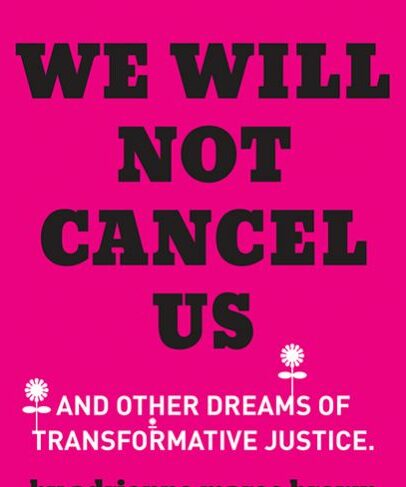
WE WILL NOT CANCEL US (AND OTHER DREAMS OF TRANSFORMATIVE JUSTICE) BY ADRIENNE MAREE BROWN
Why I love this resource: I have dog-eared and underlined almost every page of this small treatise. It laid out clearly for me the very ambiguous waters of gracious accountability: how we hold ourselves and each other accountable to just actions while recognizing our own humanity and imperfection. adrienne delivers a deeply vulnerable and candid piece that helps all of us develop solidarity without unintentionally turning the tools of injustice against each other.
I highly recommend this book for any DEIJ teams and BIPOC Affinity Groups out there who thirst for conversations about trauma, conflict, resilience, and gracious accountability.
WHITE SUPREMACY — STILL HERE BY TEMA OKUN
Why I Love This Resource: We have to understand the waters within which we swim in order to effectively change their direction, and that is exactly what Tema does in this document. Each time I read or reference this piece (which is regularly as I keep it on my desk), I am handed the words to articulate the nebulous, gaslighting concepts that I struggle to communicate. Tema lays out each trait of white supremacy culture and gives us a shared vocabulary with clarity, insight, and humility.
I especially appreciate how Tema gives gratitude and credits each primary source throughout the document. I highly recommend this document for any organization, team, or individual trying to navigate the murky waters of a white supremacy world. Take your time with it as it is jam-packed, and talk with others also exploring this resource to help process its content. It is a foundational part of any justice library.
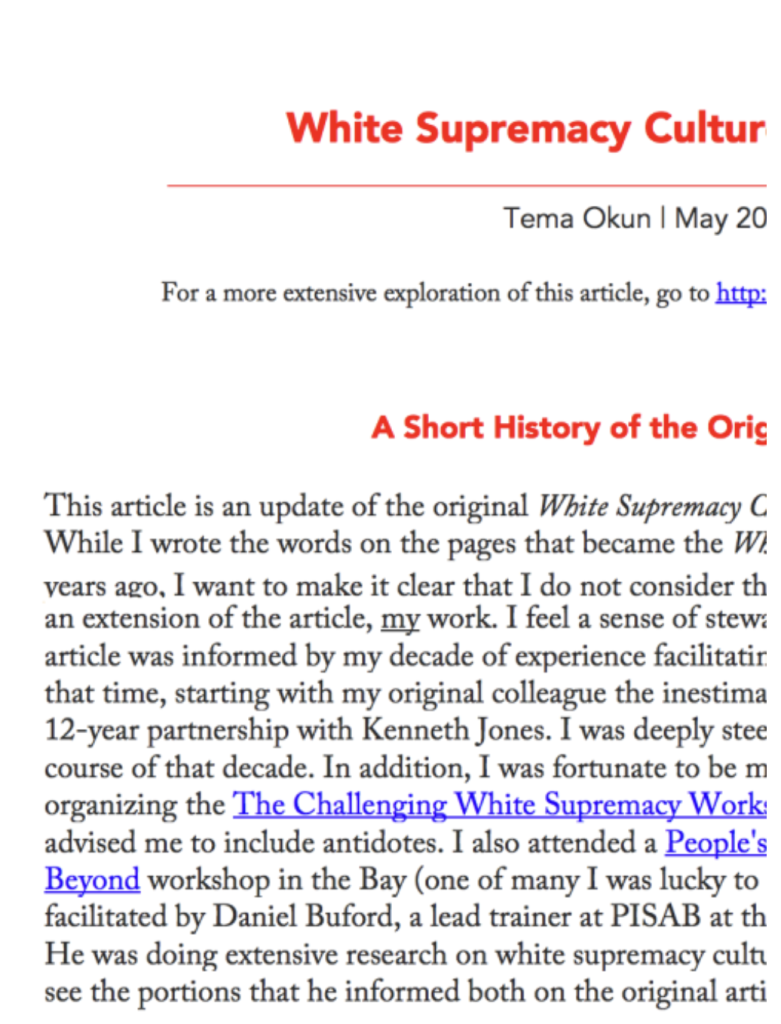

BINA PATEL’S KEYNOTE SPEECH FOR THE CLEVELAND PROGRESS INSTITUTE
Why I Love This Resource: I watch this keynote very often and learn from it every time. Bina speaks with a candidness that clearly conveys a respect for both her audience and the communities she fights for each day. The content is decoded and direct, making you want to play back what she just said again and again and get it down on paper, it’s that spot on (so I recommend you watch this with a pen and paper in hand).
I highly recommend this for majority white senior leadership teams who claim the mantle of racial justice; this keynote will let you know if you are actually hitting that mark.
ALOK ON THE URGENT NEED FOR COMPASSION, INTERVIEWED FOR THE MAN ENOUGH PODCAST
Why I Love This Resource: This is one of the best interviews I have ever seen. There is so much strength and vulnerability and power in this conversation. Alok is a brilliant activist, scholar, and artist, and I can’t help but be inspired and learn something new and feel called in with love every time I watch them.
I highly recommend this for anyone at any stage of their DEIJ journey, especially for those examining the intersections of patriarchy, masculinity and gender, and race in justice.
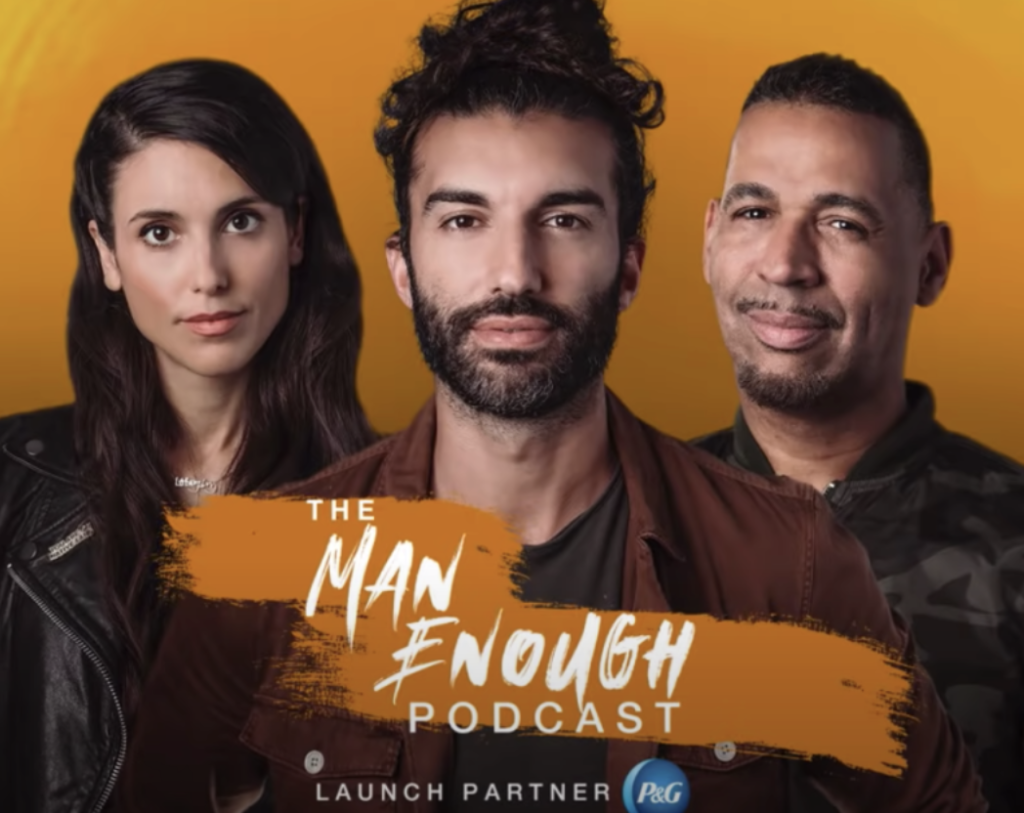
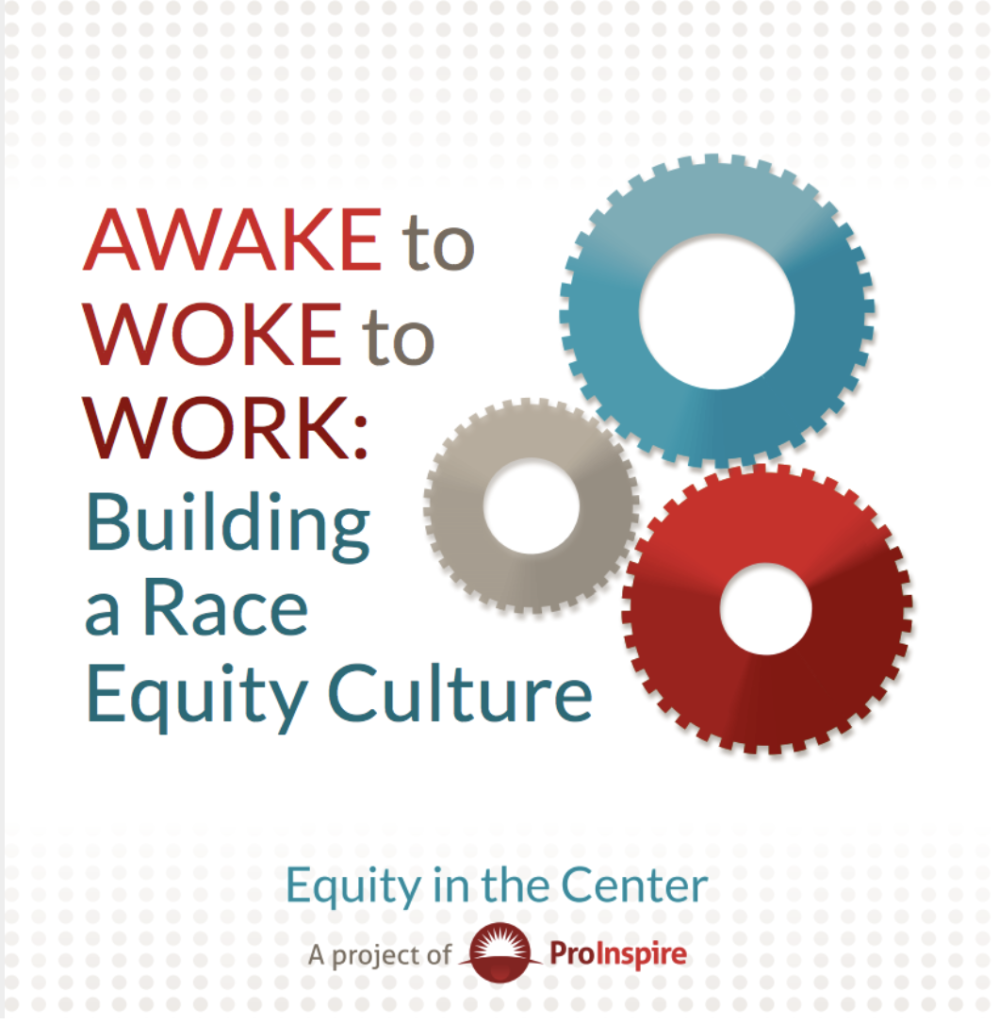
AWAKE TO WOKE TO WORK: BUILDING A RACE EQUITY CULTURE
Why I Love This Resource: I firmly believe that centering equity requires the whole organization. Effective and sustainable equity work requires examination of the policies, procedures, and practices at all levels of the organization, from the staff to the board to the community being served.
This resource lays out each organizational lever in clear and concise verbiage with short rubrics to get the conversation flowing. And, anyone who knows me knows that I love a good rubric. 🙂
RACE CAPITAL: BEYOND THE NONPROFIT INDUSTRIAL COMPLEX
Why I Love This Resource: I read and teach about the nonprofit industrial complex… and rarely have I heard such a powerful and focused synthesis of its core and impact. The hosts demonstrate strength and vulnerability as they discuss the complex overall, each of their roles and positional privileges within it, and how nonprofits can truly align their good intentions with real community-focused actions. I especially love the resource links on the episode webpage, including a favorite and foundational resource: The Revolution Will Not Be Funded.
I highly recommend this podcast and all the linked resources for any nonprofit leadership and/or DEIJ team. This will challenge you… in all the best and hardest ways.
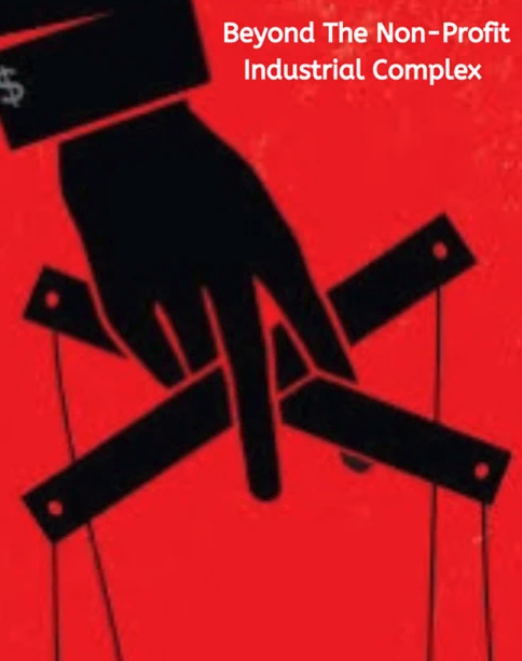
Your organization’s journey begins now.
Building a functional and collaborative team starts the moment you say yes. Sapna Strategies is ready. Are you?
